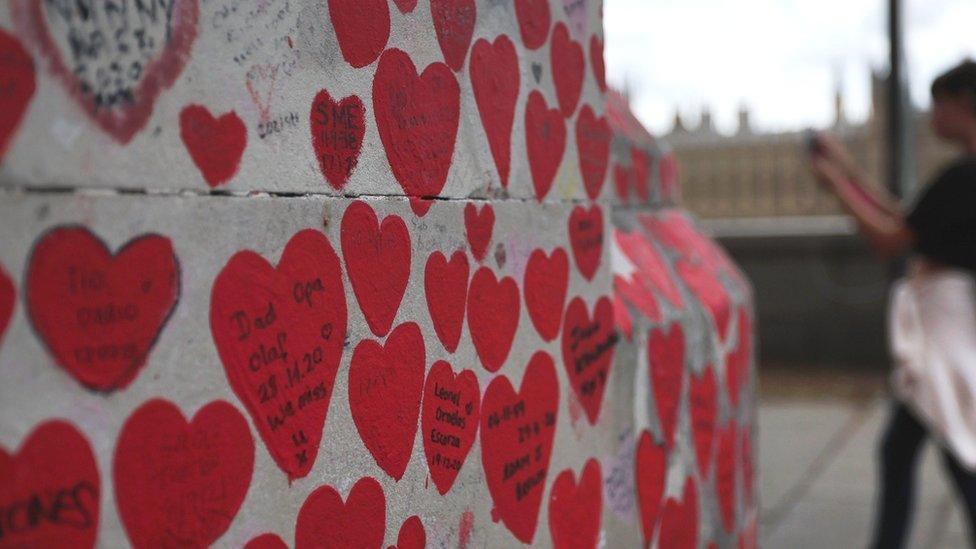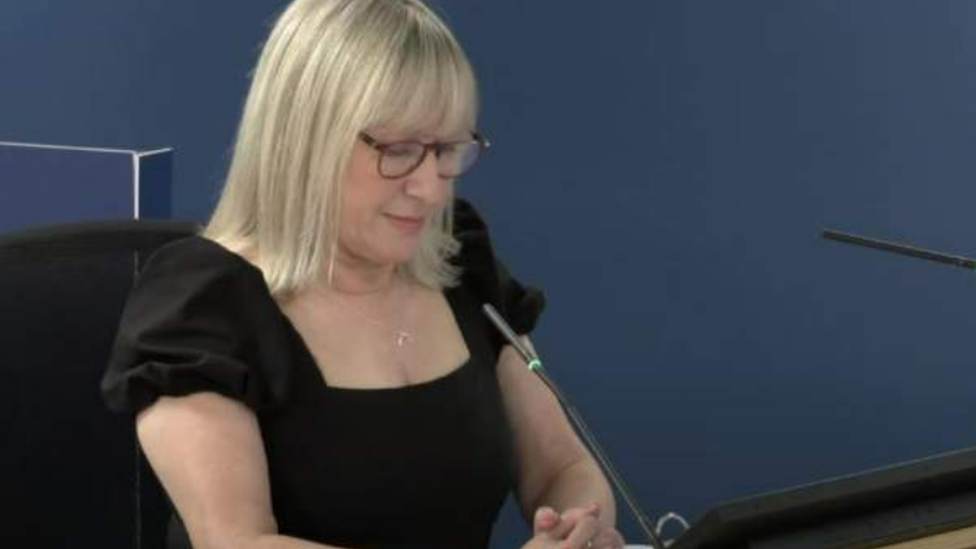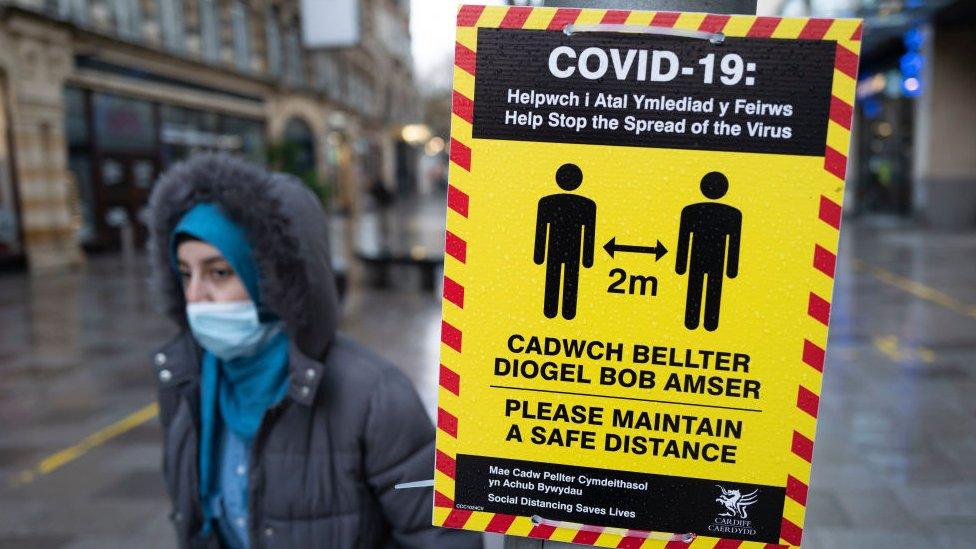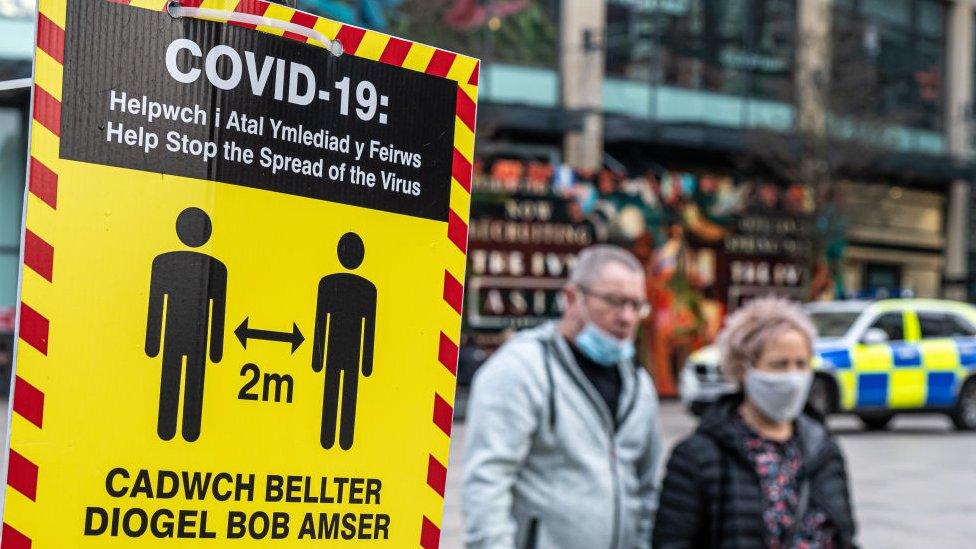Covid inquiry: Dedicate minister to prepare for next pandemic, group says
- Published

The Welsh and UK governments should have their own ministers dedicated to preparing for emergencies, Wales' Covid bereaved families group has said.
In their closing statement to the first part of the Covid inquiry the group said there was a need for clear leadership.
The module of the inquiry is looking at how ready the UK was for a pandemic.
Their counsel also said Welsh ministers knew about a lack of facilities to deal with serious infectious diseases.
Barrister Kirsten Heaven said an apology from the Welsh government was "long overdue".
The Covid-19 Bereaved Families for Justice Cymru group told the inquiry there is a "need for clear leadership on issues of resilience and preparedness".
"At a UK level there should be a senior cabinet minister devoted solely to the resilience and preparedness portfolio; such a function is equally important to Wales," said Kirsten Heaven, the barrister representing the campaign group.
Ms Heaven said that while the first minister had traditionally carried out the role, a dedicated minister "could provide greater impetus in the day-to-day work of preparedness and resilience".
'Lack of facilities'
Ms Heaven told the inquiry that the Welsh government and those responsible for pandemic planning knew about the "lack of facilities" to deal with serious infectious diseases.
She said that since 2006 annual surveys of all airborne isolation rooms in major hospitals in Wales had found many of the rooms to be inadequate.
A separate 2017 report by the Airborne Isolation Rooms Working Group concluded that building structures in Wales did not support safe management of infectious patients.
"It's staggering that there was not one single health board in Wales capable of dealing with a high-consequence infectious disease," the counsel said.
Ms Heaven also said that health inequalities were only considered in a "minimal way" by both the UK and devolved governments.
She said the Public Health Wales emergency response plan made reference to vulnerabilities but there were "no references to those with comorbidities, older people or health inequalities".
Ms Heaven said "this is simply inexcusable, not least because the Welsh government was bound by legal duties under the Equality Act 2010".
'The Welsh government have not said sorry'
The group's barrister said that an apology from the Welsh government was "long overdue".
She told the inquiry that for any changes to be successful, there would need to be "accountability and strong leadership in the Welsh government".
Lessons would not be learnt without the Welsh government acknowledgement of its failures, she said.
"The Welsh government have at no stage said sorry to Welsh bereaved families," she said.
"The Welsh government must now reflect on the evidence, acknowledge its failures and provide a strong commitment to the systemic change require to prevent a future loss of life."
The barrister also rejected the claim, made by a Welsh official at the inquiry, that preparing for a no-deal Brexit held up pandemic plans.
"The Welsh people were not told that such life and death choices were being made for them. They should have been," she added.
Robin Allen, the barrister representing the Welsh Local Government Association, told the inquiry that austerity had "impacted on councils' ability to plan and prepare effectively".
Mr Allen said "continued budget cuts will undermine the resilience and capacity of councils to respond to pandemics".
The Welsh government says it has made a written submission as its closing statement to the first module of the inquiry, which will be published later.
Related topics
- Published18 July 2023

- Published3 July 2023

- Published4 May 2023
